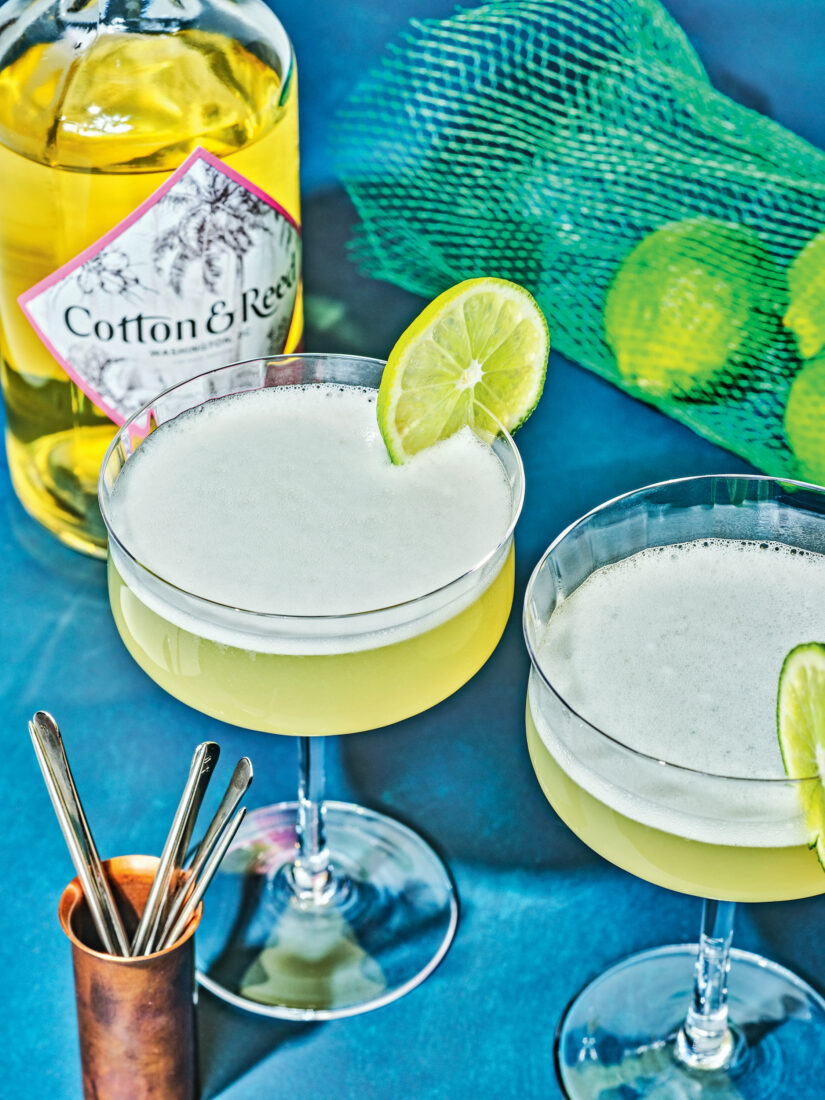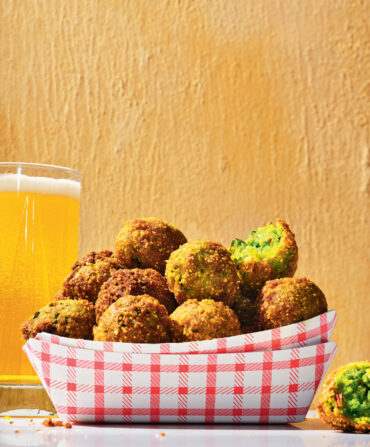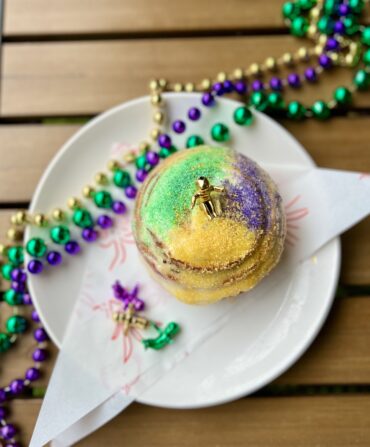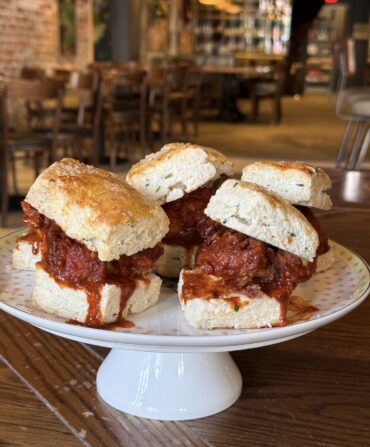You recall, of course, what triggered the mutiny on the H.M.S. Bounty. You don’t? Well, it was a theft from the captain’s private provision of coconuts, a transgression that set in motion the infamous uprising. “There’s nothing more refreshing than coconut water,” the accused thief notes in the novelization of the event. “Such a tempting sight, a great heap of them.”
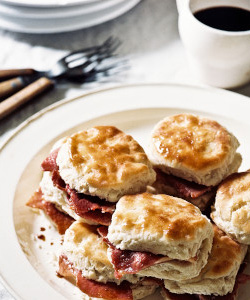
If pineapples symbolize hospitality, let us consider coconuts rather than apples the symbol of temptation. After all, beyond being a tasty, nutritious fruit, the coconut is perhaps the most useful product of the tropics—the Swiss Army knife of the plant kingdom, as some have called it. It quenches thirst and supplies oil. You can weave the shell’s fiber wrapping into rope, turn the shell itself into charcoal, or cut it in half to create a cup or bowl.
Coconuts also make a delicious summer cocktail ingredient. Yes, there’s the piña colada, that towering colossus of tropical flavor. But skilled bartenders know coconut can also do nuance.
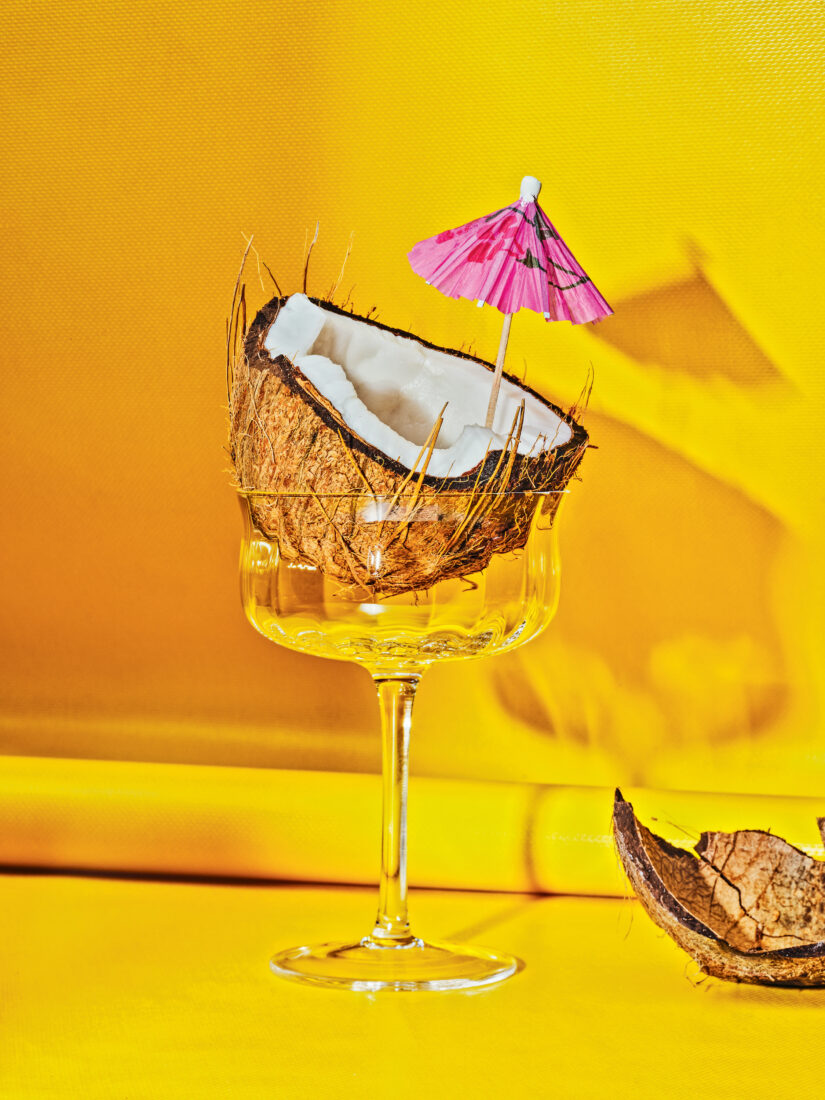
That’s increasingly the case with coconut-infused spirits, too. Coconut-flavored spirits have been around for a time—Malibu is the top-selling coconut rum, and you can find coconut gin, coconut vodka, and even coconut whiskey, for some inexplicable reason. Many of these, however, depend on coconut essences and extracts, which can bear as much resemblance to fresh coconut as lemon Pledge does to a ripe Mediterranean citron.
“For us, coconut flavorings suffer from the ‘uncanny valley’ effect,” says Jordan Cotton, cofounder and CEO of Cotton & Reed, a distillery in Washington, D.C., that produces a robust coconut rum. “So we came to the incredibly obvious conclusion that to get our coconut rum to taste like coconut rather than sunscreen, we’d better flavor it with actual coconut.”
Other producers have also embraced the flavor of fresh rather than ersatz coconut. Thrasher’s Coconut Rum, also made in D.C., uses both raw and dried coconut in its infusions and toasted coconut in its botanical basket, much like making gin. The makers of the much-beloved Stiggins’ Fancy Pineapple Rum, one of the first rums to capture the lusciousness of the hospitality fruit, recently released Planteray Cut & Dry Coconut Rum, which infuses rum distilled on Barbados with coconuts harvested from island farms.
While you could deploy these rums in a piña colada, that’s like pouring an elegant Champagne in a mimosa. Better to keep it simple, to let the more subtle layers of a good spirit emerge. Jordan Cotton suggests a coconut daiquiri. Since coconut rums tend to be lower proof than standard spirits—Cotton & Reed weighs in at 65 proof—he likes to augment it with a funky, higher-proof rum. “It needs an overproof dance partner for the cocktail to have the right impact,” he says, recommending Jamaican rums such as Wray & Nephew Overproof, Rum-Bar, or Smith & Cross “to amplify the fruitiness.” Consider a sip a quick trip to the tropics. Tempting, no?


